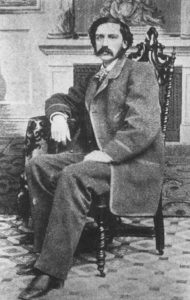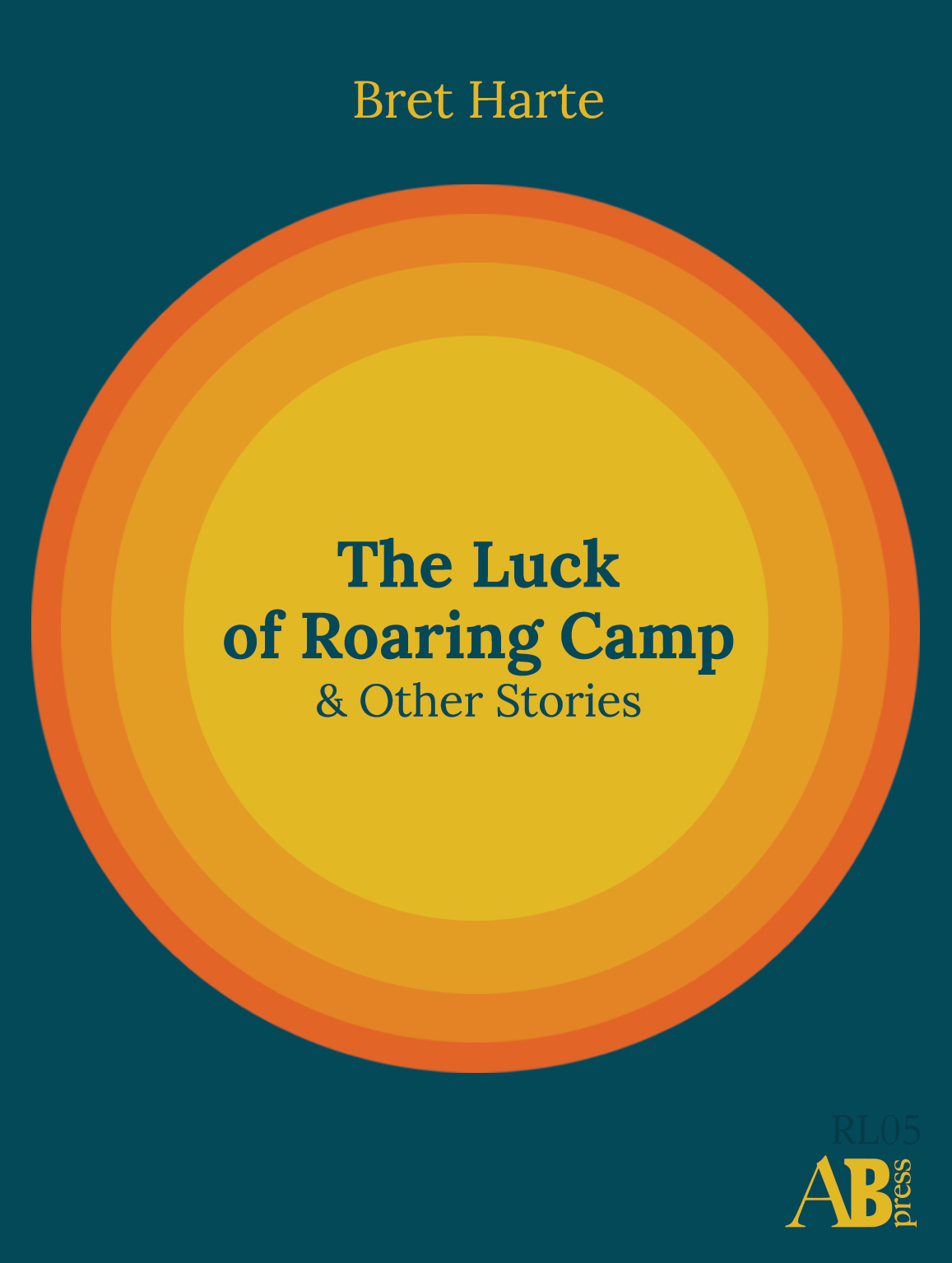Biography
 BRET HARTE (1836-1902) finished his schooling when thirteen-years-old. He was born in Albany, New York, but moved to California in 1854 where he found employment as a teacher, miner, messenger and journalist. His life reads as improbable as any other ambitious, mobile, well-read and intelligent young man at that time.
BRET HARTE (1836-1902) finished his schooling when thirteen-years-old. He was born in Albany, New York, but moved to California in 1854 where he found employment as a teacher, miner, messenger and journalist. His life reads as improbable as any other ambitious, mobile, well-read and intelligent young man at that time.
One constant throughout his life, however, was his ability to make enemies, at times foolishly though it would seem not often without consideration. When Harte was twenty-four and with the responsibiiity of temporary acting editor of The Northern Californian, he reported in caustic tone of a massacre of Wiyot Indians: “a more shocking and revolting spectacle never was exhibited to the eyes of a Christian and civilized people. Old women wrinkled and decrepit lay weltering in blood, their brains dashed out and dabbled with their long grey hair. Infants scarcely a span long, with their faces cloven with hatchets and their bodies ghastly with wounds.” This exposé proved to be unwise for his career and Harte was forced to move away from the area after he received retaliatory death threats; even when settled in San Francisco, he was to publish an anonymous letter of further condemnation. Dissent from established thought, sometimes for effect, seemed to come easy to Harte. When in 1865 he was commissioned to edit an anthology of Californian poetry, for example, the finished volume contained only 19 poems. Harte cited the state’s “monotonous climate” as the reason for its bad poetry; if he attracted much derision locally, his observation was well received elsewhere.
In 1868, as editor of a new literary magazine, The Overland Monthly, he published his short story The Luck of Roaring Camp. This story shot him to nationwide fame; it remains his most anthologised work. It was included in his first and very well received volume of short stories in 1870. A satirical and, at the time, misinterpreted poem, Plain Language from Truthful James (otherwise known as The Heathen Chinee), published in the magazine also in 1870 added further notoriety to his reputation.
Harte, chasing the dollar and a more solid literary life, moved eastwards to great acclaim, first to New York in 1871, later to Boston. Mark Twain observed wryly that he “crossed the continent through such a prodigious blaze of national interest and excitement that one might have supposed he was the Viceroy of India … or Halley’s Comet…” Twain and Harte had been great friends at first and had collaborated even on a play; indeed Twain had regarded himself to be Harte’s mentor. But they fell out rather dramatically, Twain then to observe that “Harte is a liar, a thief, a swindler, a snob, a sot, a sponge, a coward, a Jeremy Diddler, he is brim full of treachery…”
In Boston, Harte’s career took a positive turn after he negotiated a substantial annual fee – the unprecedented sum of $10,000 for 12 stories – from the publisher of The Atlantic Monthly (Fields, Osgood & Co). Such good fortune proved to be short-lived, and Harte became depressed and stalled on his writing as its quality declined. His career slumped and he struggled for work. Between 1873 and 1876 he managed to publish only seven short stories, and he found himself in debt.
Harte moved to Europe in 1878, first as a United States Consul in Germany, then in Glasgow. (“To send this nasty creature to puke upon the American name in a foreign land is too much,” lamented Twain.) In 1885 he settled in London. He spent 24 years in Europe where he wrote prodigiously and with moderate success though his books were not lauded as before. His European sojourn became permanent but his time there was spent alone. He sent money home to the United States but was never reunited with his wife and children; one early biographer had suggested that Harte’s wife was “almost impossible to live with.”
Bret Harte died in London in 1902.
However far he strayed in subject matter, he was always known for, and frequently returned to, telling stories of the Californian Gold Rush. He monetised the Wild West and made it palatable to the rest of America. He was perhaps a literary John the Baptist who prepared the way for the less genteel genre of the Western – and the many Hollywood mythologies of cowboys, John Wayne and Bonanza. Included here are seven of his best tales.
CONTENTS
The Luck of Roaring Camp
The Outcasts of Poker Flat
Tennessee’s Partner
The Idyl of Bed Gulch
Brown of Calaveras
The Poet of Sierra Flat
A Yellow Dog



